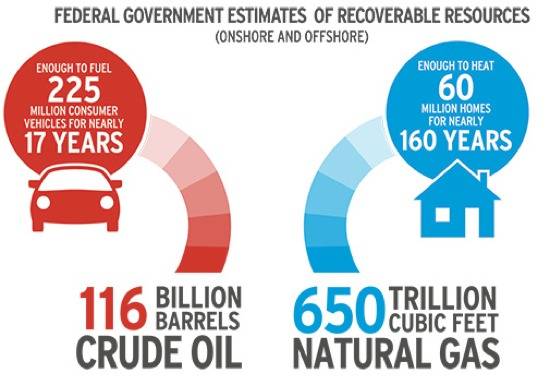
Conservative estimates put the size of recoverable crude oil and natural gas offshore USA the equivalent of nearly 35 years of Saudi Arabia's production.
Excerpts from Chevron's case for the need of development of offshore resources follow:
U.S. government estimates suggest federal lands (onshore and offshore) alone hold technically recoverable resources of roughly 116 billion barrels of crude oil and 650 trillion cubic feet of natural gas. That is enough crude oil to power about 225 million consumer vehicles for nearly 17 years and enough natural gas to heat 60 million homes for nearly 160 years.
To grasp this historic opportunity, the U.S. government must ensure America's tax, regulatory and access policies support developing our natural resources safely and responsibly. Only with the proper framework will the energy industry continue to invest in America—creating jobs, stimulating growth, increasing government revenues, and enhancing our energy and economic security now and in decades to come.
As of now, nearly all of the eastern U.S. Gulf of Mexico, the entire Atlantic and Pacific coastlines, and the majority of offshore Alaska—more than 85 percent of the U.S. Outer Continental Shelf—remain off-limits to crude oil and natural gas exploration and development. Additionally, 60 percent of federal onshore lands are off-limits or subject to significant access restrictions. A recent Wood Mackenzie study estimated that increasing access to U.S. hydrocarbon resources and the approval of more pipelines could support an additional 1.4 million jobs by 2030. It also could raise more than $800 billion in cumulative government revenue by 2030.
If the United States encourages responsible development of our abundant energy resources, it could help create more than a million good-paying jobs for Americans, add billions of dollars in government revenues and lead to greater energy security between now and 2030. In the process, we could reduce our dependence on oil imports, giving us greater control over our energy future.
The bottom line is that the energy economy is ready to drive the country forward. But it requires a policy agenda that enables, not compromises, that goal.



